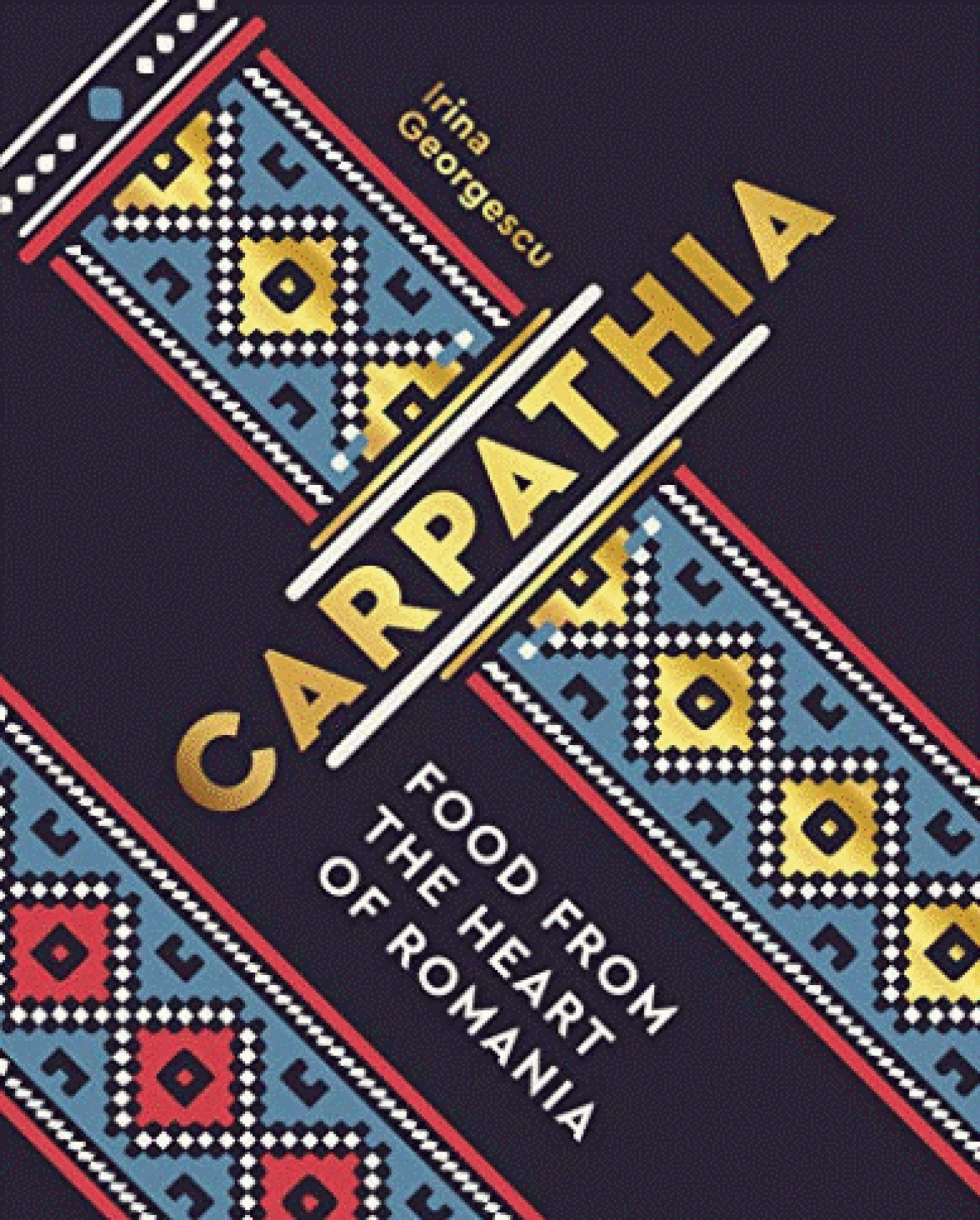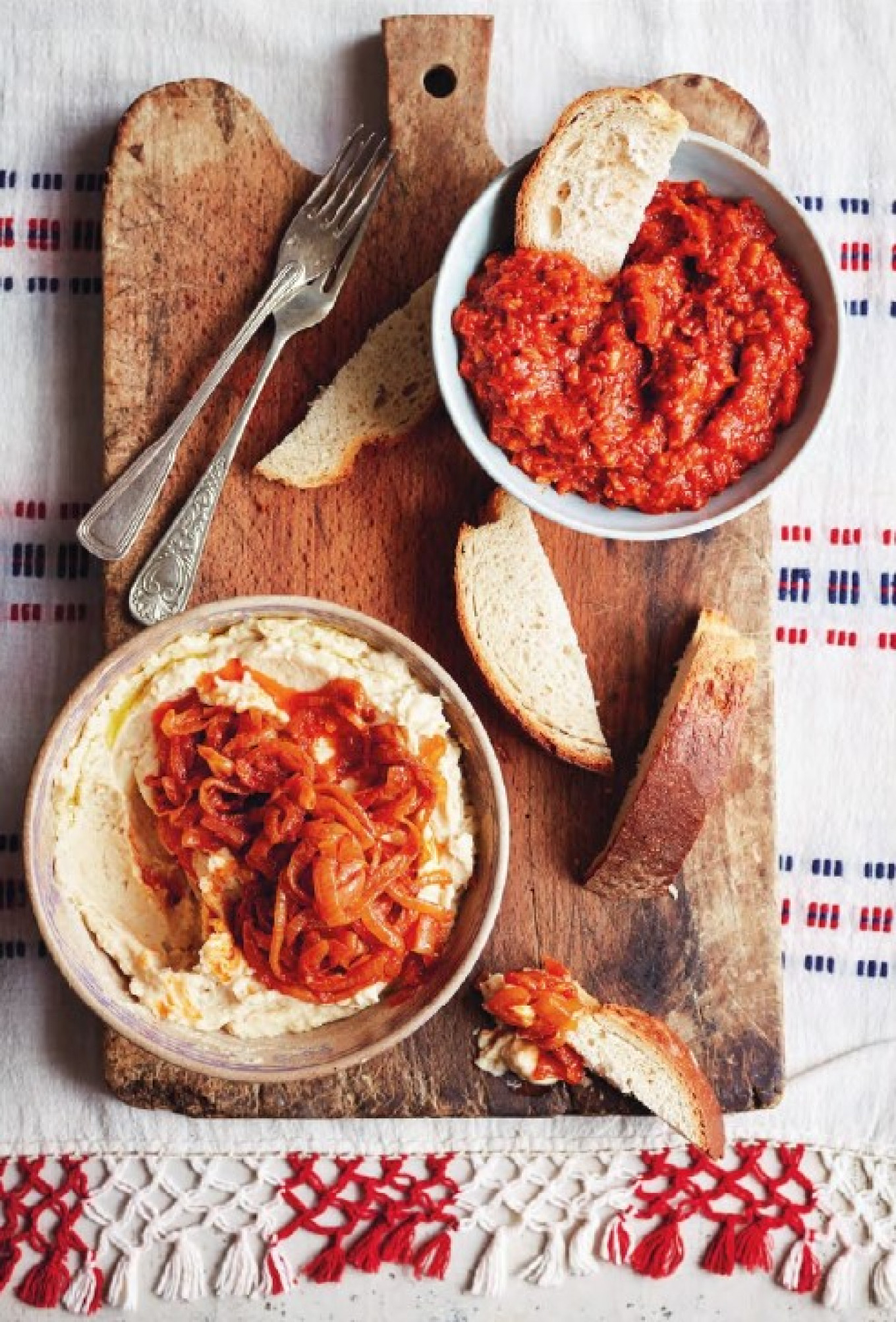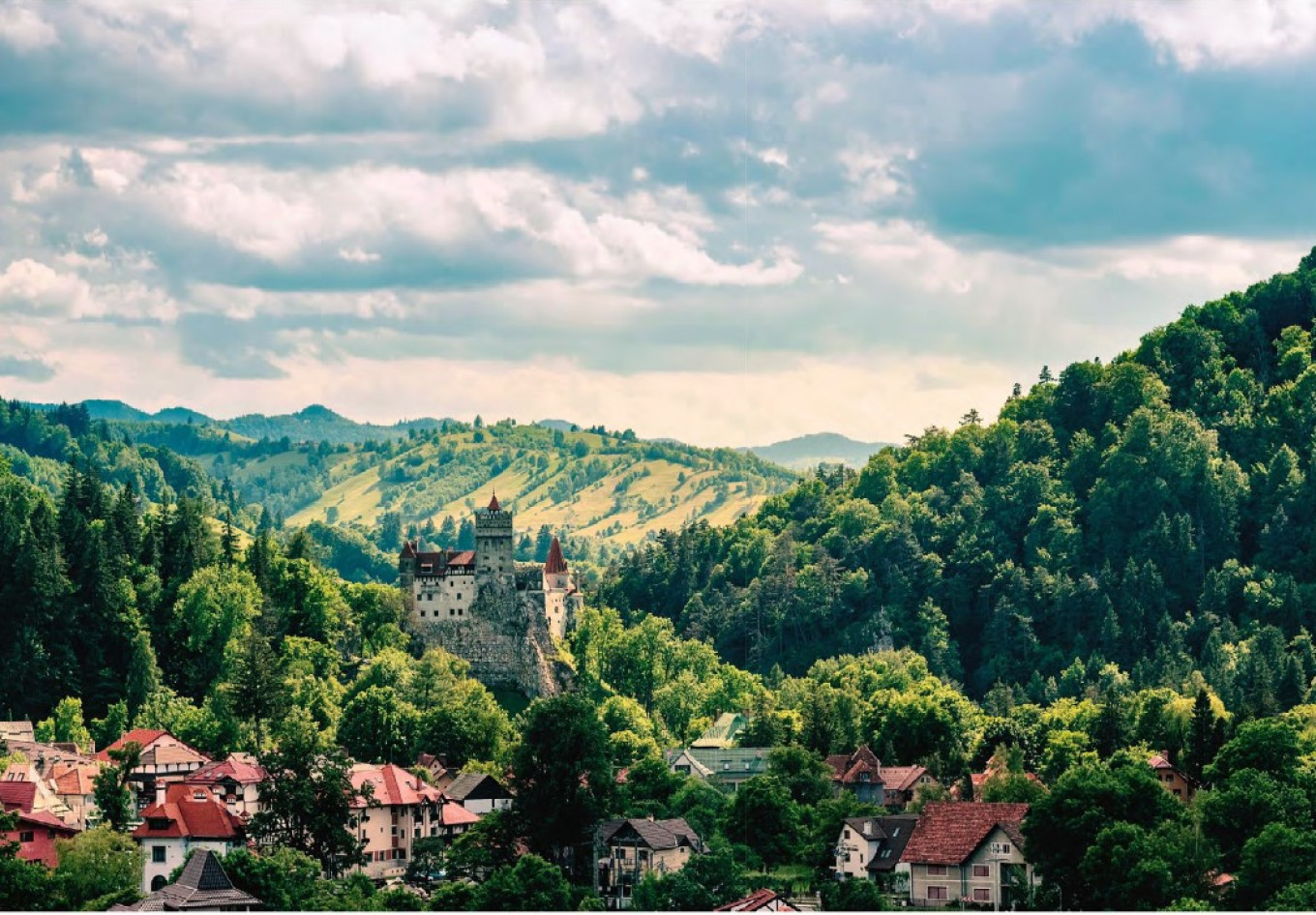If your household's lockdown dynamics are anything like mine, eating habits have probably changed dramatically over the past seven weeks. An informal straw poll of my cyber chums from around the world suggests that almost everyone has abandoned conventional mealtimes or the traditional components of breakfast, lunch, or dinner. Snacking is on the rise, as is comfort food. Balanced nutrition, I hear you cry? That has gone right out the window, along with bedtime, screen time audits, and socks.
So what are people consuming? The food group currently sustaining my household: the spread.
I can't say enough about the virtues of having a ready supply of spreadables to hand. They don't even have to be kept in charmingly vintage French glass jars (though, of course, it does help). If you have a sourdough loaf, a jar of hummus, a crock of marinated feta cheese, or a little ramekin of salmon or liver mousse, you need only add a glass of wine, and that's dinner. Perfect for binge-watching with far less clean up.
My household has embraced this "fatten the spread" lifestyle wholeheartedly as we continue to do our bit to "flatten the curve." But having exhausted my repertoire of diverse hummuses and fish mousses, I feared I would soon become repetitive.
Irina Georgescu and her new cookbook to the rescue! From the first pages, "Carpathia: Food from the Heart of Romania" (Interlink Books, 2020) was a veritable cornucopia of new ideas and inspiration.

Immediate associations of what Romanian cuisine is may not immediately spring to mind. But "Carpathia" skillfully lures the reader into a delightful discovery of a complex culinary landscape, shaped by the country's diverse geographic regions and equally various ethnic traditions, which have left their stamps on the people, culture, and cuisine of the region for millennia.
The title "Carpathia" is a nod to the country's soaring mountain range, which cleaves Romania in two. But the country also boasts flat plains and the verdant Danube Delta, and its adjacent Black Sea coast. The result is a cuisine equally at home with fish as it is with pork; one that relies upon grains and cereals as much as it does potatoes and pasta, and which relishes seasonal bounty by capturing vegetables, fruits, and herbs at the peak of their freshness and preserving and fermenting them to enjoy throughout the long winters.
Throughout much of its long history, Romania has been caught between the power struggles of its larger neighbors. From antiquity, when Romania or Thrace was a coveted breadbasket for a succession of great empires, the country has been invaded and occupied by empires and kingdoms. Each of these overlords left a tangible legacy on the cuisine, from the small plates, grilled meat, and vegetable spreads of the Ottoman mezze to the slow braises and comforting noodle dishes, pickles, and fermented vegetables and spicy sausages which came from Hapsburg imperial rule. Georgescu points out that Romanians eat and live like Ottomans and Greeks in the summer and turn to German, Austrian, and Slavic dishes and traditions as winter draws in.
At the heart of "Carpathia" are the compelling stories Georgescu recounts of her own family and their "can do" attitude towards sourcing, cooking, and enjoying great food even during the privations of the Soviet rule. The extended Georgescu clan emerges as an engaging, entertaining, and essential ingredient in the success of "Carpathia," as Georgescu introduces us to her eccentric uncle, who raises pigs for the Romanian Christmas dinner, and two beloved grandmothers whose gifts are recipes redolent with paprika, aubergine, lovage, and other fresh herbs from the garden.
"Carpathia's" first chapter is very much in the Ottoman tradition, filled with small plates of hors d 'oeuvres and, you guessed it, delectable spreads, which only need a crusty loaf of bread to turn them into a party. I could not wait to try Fasole bătută, or lima bean dip with sweet caramelized onions, and it did not disappoint. This is the perfect centerpiece for a tray of charcuterie and cheese needing only some pickled veggies to go with it.
From "Carpathia": Fasole bătută

Romanian lima bean dip with sweet caramelized onions
This is a gorgeous, garlicky dip that is very popular throughout the year and often served the night before St. Andrew’s Day. It’s believed that the garlic keeps evil away and spiritually cleanses the house. Serve on thick slices of bread topped with the addictive caramelized onions.
Serves 4-6
For the lima bean dip:
- 3 garlic cloves
- 2 x 14 oz. (400 g) cans lima beans, drained
- 1/4 cup (60 ml) olive oil
- 1 teaspoon salt
- 1 tablespoon thick plain yogurt
For the caramelized onions:
- Vegetable oil or sunflower oil, for frying
- 2 white onions, finely sliced
- 1 teaspoon sweet paprika
- 1 teaspoon sugar
- Scant 1/2 cup (100 ml) tomato passata or purée
To make the dip, pulse the garlic briefly in a food processor, then add the lima beans. Gradually add the oil, combing well after each addition, until fully incorporated. Finally, add the salt and yogurt and combine well. Set aside.
To make the caramelized onions, cover the bottom of a frying pan with a thin layer of oil and turn the heat to high. When it’s hot, add the onions and stir to ensure that they are well coated in oil. Add a splash of water to avoid burning. Reduce the heat to medium and cook for around 10 minutes, stirring from time to time, until soft and golden. Add the paprika, sugar, and pasta. Cook until everything melts into a deep orange color, stirring frequently. Remove from the heat and leave to cool.
Serve the dip in a bowl topped with the caramelized onions.
Reprinted with permission from “Carpathia: Food From the Heart of Romania” by Irina Georgescu. Published in U.K. by Frances Lincoln and in the U.S. by Interlink Publishing. © Irina Georgescu. Food photographs © 2020 Jamie Orlando Smith Photography Limited. For more information about Georgescu, her book, and her writing, see her site here.

A Message from The Moscow Times:
Dear readers,
We are facing unprecedented challenges. Russia's Prosecutor General's Office has designated The Moscow Times as an "undesirable" organization, criminalizing our work and putting our staff at risk of prosecution. This follows our earlier unjust labeling as a "foreign agent."
These actions are direct attempts to silence independent journalism in Russia. The authorities claim our work "discredits the decisions of the Russian leadership." We see things differently: we strive to provide accurate, unbiased reporting on Russia.
We, the journalists of The Moscow Times, refuse to be silenced. But to continue our work, we need your help.
Your support, no matter how small, makes a world of difference. If you can, please support us monthly starting from just $2. It's quick to set up, and every contribution makes a significant impact.
By supporting The Moscow Times, you're defending open, independent journalism in the face of repression. Thank you for standing with us.
Remind me later.







